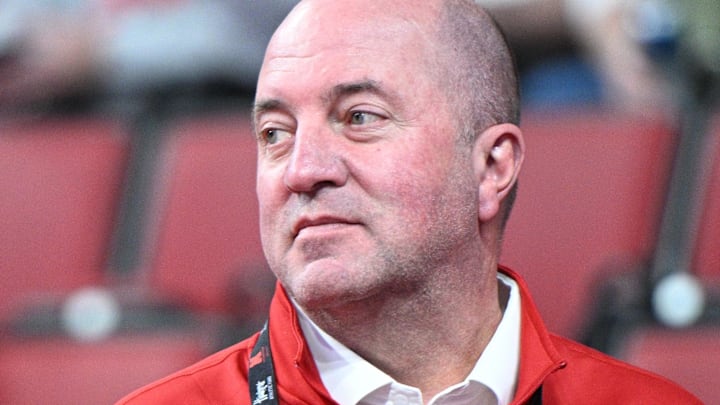Whe it comes to the new world order in college football, it’s not surprising that Nebraska athletic director Troy Dannen is one of the very few who is staunchly opposed to any roster limit of any kind, once the House vs NCAA settlement is finally and officially put into place.
The Huskers, despite losing a half dozen players off their roster this week to the transfer portal, is still well above the 105-man limit that is expected to go into place on July 1. Of course, there’s some real doubt as to whether Nebraska or any other school will have to go down to 105 this year after the judge overseeing the case, Claudia Wilken ruled that schools must implement some kind of grandfather clause or phasing out rather than a sudden cut down.
Nebraska battles roster limits as football braces for major changes
It’s possible that Dannen sees an opening and is going to push to just get rid of the roster limit altogether. In the process, he could be saving the walk-on program, a system that is far more important and historical for Nebraska than most other colleges around the country.
“The experience with the transfer portal has shown that stockpiling rosters with transfer athletes will be less of an issue because the athletes want to go somewhere where they can play,” Dannen told Yahoo Sports. “The logistics of no roster limits are simpler than grandfathering and everyone carrying different rosters for the next four years.”
In other words, Dannen doesn’t believe the reason for the roster limits, the claims that programs like the Cornhuskers would stockpile players and teams like Tulane would miss out isn’t based in reality. There’s logic to it.
Bench players don’t want to sit in Lincoln and be third or fourth stringers when they can start elsewhere. That’s how the portal has worked. It’s why there’s so much movement every year.
The 105-man roster isn’t going to stop Nebraska or anyone else form stockpiling the best players. It just stops them from stockpiling the best backups. The portal does that already. There’s now indication Dannen’s push is gaining any traction, but as college football moves closer to the May 6 deadline, perhaps a temporary reprieve this year can be become permanent in 2026 and beyond.
